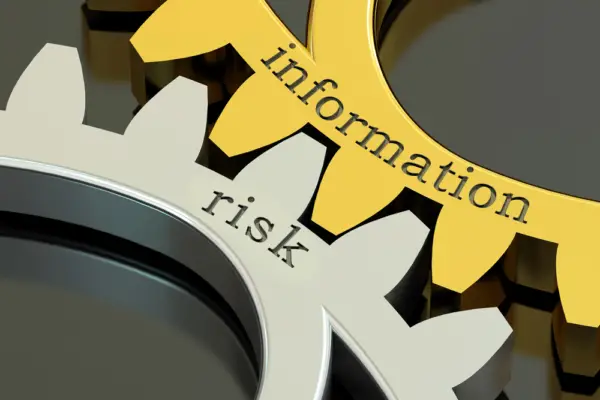Risk management is a crucial aspect of any business or organization, so there is a high demand for professionals in this field. In Australia, over 14,000 job opportunities are available for individuals interested in pursuing a career in risk management.
This dynamic and challenging industry offers a range of positions, from Risk Manager to Enterprise Risk Analyst, with top employers, including PWC Australia, EY, and ANZ Banking Group.
Getting a job in risk management involves a combination of education, experience, and networking. Examples of some steps to help you get started:
Education: Most risk management positions require at least a bachelor’s degree. Common fields of study include finance, economics, business, and accounting. Some positions may require a master’s degree in a related field or an MBA.
Certifications: Several professional certifications can enhance your qualifications for a job in risk management. These include the Certified in Risk and Information Systems Control (CRISC), Certified Risk Manager (CRM), and Financial Risk Manager (FRM) certifications. These certifications demonstrate your knowledge and skills in risk management and can make you more attractive to employers.
Experience: Many risk management positions require experience in a related field. This could include finance, auditing, insurance, or business analysis roles. Look for opportunities to gain experience in identifying and managing risks, such as internships or entry-level positions.
Skills: Risk management requires various skills, including analytical skills, problem-solving skills, communication skills, and attention to detail. You should also be comfortable with using risk assessment tools and software.
Networking: Networking can be a valuable way to find job opportunities in risk management. This could involve attending industry events, joining professional organizations, or connecting with professionals on LinkedIn.
Job Search: Look for job postings on job boards, company websites, and professional organizations. Tailor your resume and cover letter to each job application, highlighting your relevant education, certifications, experience, and skills.
Interview Preparation: Before an interview, research the company and the role. Be prepared to discuss your experience with risk management and provide examples of how you have identified and managed risks in the past.
To enter the risk management field, having the qualifications and education is essential. A degree in business, finance, or a related field is typically required, and many employers prefer candidates with a postgraduate qualification in risk management.
Additionally, relevant certifications, such as the Certified Risk Manager (CRM) or the Financial Risk Manager (FRM), can demonstrate a candidate’s expertise.
However, qualifications alone may not be enough to secure a job in risk management, and candidates must also possess the necessary skills and experience and a strong network of connections.
Qualifications and Education
A bachelor’s degree or higher in relevant fields is typically required for most positions, and the filter for education level on job search websites can be a valuable tool for job seekers to refine their search.
Regarding relevant fields, risk management jobs in Australia often require education in business, finance, economics, mathematics, or statistics. Additionally, specific certifications can benefit those pursuing a career in risk management, such as the Certified Risk Manager (CRM) and Financial Risk Manager (FRM) designations.
These certifications demonstrate a level of expertise and knowledge within the field of risk management.
Education and qualifications are crucial factors to consider when pursuing a career in risk management. A bachelor’s degree or higher in business, finance, economics, mathematics, or statistics is typically required, and certifications such as CRM and FRM can be beneficial.
Job seekers can use filters for education level on job search websites to refine their search and increase their chances of finding a suitable position.
Skills and Experience
Proficiency in risk assessment methodologies, project management principles, and analytical skills are essential attributes for candidates seeking to excel in risk management.
In addition to possessing these technical skills, individuals must also exhibit excellent interpersonal skills and the ability to communicate effectively with stakeholders at all levels of an organization.
Attention to detail, strong problem-solving abilities, and the capability to work independently or as part of a team are also crucial.
Candidates should have relevant experience in risk management or a related field to be competitive in the job market.
Employers often seek individuals with experience in risk analysis, risk assessment, or crisis management.
Experience in project management, finance, or data analysis can also be beneficial.
Professional certifications such as the Certified Risk Management Professional (CRMP) or the Project Management Professional (PMP) can enhance a candidate’s qualifications and make them stand out among other applicants.
Candidates should also possess knowledge of industry-specific regulations and compliance requirements.
Familiarity with industry best practices and emerging trends in risk management is also desirable.
Utilizing technology to streamline risk management processes and analysis is increasingly important in the digital age.
Finally, candidates should be adaptable and willing to learn new skills and techniques as the field of risk management evolves.
A combination of technical expertise, interpersonal skills, relevant experience, and a willingness to learn and adapt is essential for individuals seeking to excel in risk management.
Employers seek candidates who can analyze and mitigate risks, communicate effectively with stakeholders, and work independently or as part of a team to achieve organizational goals.
Possessing these qualities and continually developing their skill set, candidates can position themselves as valuable assets to their organizations and advance their careers in risk management.
Networking and Connections
Establishing a robust network of connections within the field of risk management can greatly enhance career opportunities and provide valuable insights into industry trends and best practices, ultimately leading to tremendous professional success and fulfillment.
Networking can take many forms, including attending industry events, joining professional organizations, connecting with peers and mentors, and leveraging online resources like LinkedIn.
Building relationships with colleagues and industry experts can lead to job referrals, access to exclusive job openings, and professional development and growth opportunities.
To effectively network in risk management, it is essential to identify relevant industry events and organizations, such as the Risk Management Society (RIMS) or the Institute of Risk Management (IRM).
Attending conferences, workshops, and other events can provide opportunities to meet and engage with industry professionals, learn about emerging trends and best practices, and showcase expertise and knowledge. Joining professional organizations can also offer valuable networking opportunities and access to industry-specific resources and training.
In addition to attending events and joining professional organizations, leveraging online resources such as LinkedIn can be an effective way to network in risk management.
Building a strong online presence and connecting with peers and industry experts, professionals can expand their network and stay up-to-date on industry news and developments.

Engaging in online discussions and sharing industry insights and expertise can also help establish credibility and increase industry visibility.
Effective networking requires a commitment to building and maintaining relationships and a willingness to invest time and effort into developing one’s professional network.
| Pros | Cons |
|---|---|
| Access to job referrals and exclusive job openings | Networking can be time-consuming and require a significant investment of effort |
| Opportunities for professional development and growth | Building relationships can be challenging for individuals who are introverted or less experienced in networking |
| Exposure to emerging trends and best practices | Networking can be expensive, particularly when attending industry events or joining professional organizations |
| Increased visibility and credibility within the industry | Networking may not always lead to immediate job opportunities or professional advancement |
Resume and Cover Letter
Crafting a polished and impactful resume and cover letter is essential for professionals seeking to showcase their skills and experience in risk management.
The resume and cover letter are the first impressions that potential employers receive of a job candidate, and they can make or break the chances of securing an interview. Therefore, investing time and effort in creating a well-crafted resume and cover letter that highlight one’s strengths and accomplishments is crucial.
To create a winning resume and cover letter for a risk management position, job seekers should focus on the following three key elements:
Highlight relevant experience: Job seekers should tailor their resumes and cover letters to the job they are applying for. This means highlighting relevant experience and skills that match the job requirements.
For instance, if the job requires experience in enterprise risk management, the candidate should emphasize their experience in this area in both the resume and cover letter.
Showcase achievements: Employers are interested in what candidates have achieved in their previous roles. Therefore, job seekers should highlight their accomplishments in their resume and cover letter.
This can include quantifiable achievements such as reducing risk exposure, implementing risk management frameworks, or improving compliance procedures.
Demonstrate soft skills: Besides technical skills and experience, employers are also interested in candidates who possess strong, soft skills such as communication, problem-solving, and leadership. Therefore, job seekers should demonstrate these skills in their resumes and cover letter by providing examples of how they have used them in previous roles.
For example, they can mention times when they have successfully led a team or effectively communicated risk management strategies to senior management.
Interview Preparation
Preparing for a successful interview is a critical step towards securing a fulfilling career in risk management, as it allows job seekers to showcase their qualifications and expertise professionally and confidently, ultimately increasing their chances of being offered the position.
The first step in interview preparation is to research the company and the specific role being applied for. This includes understanding the company’s values, mission, and goals, as well as the responsibilities and requirements of the job.
The second step is to prepare responses to common interview questions related to risk management. These may include questions about the candidate’s experience in risk assessment, risk mitigation strategies, and ability to work under pressure.
It is important to provide specific examples of how the candidate has successfully managed risks in their previous roles. Additionally, practicing answering questions with a friend or family member is recommended to gain confidence and refine responses.
The final step is to dress appropriately and arrive early to the interview. Dressing professionally shows the candidate’s respect for the company and the role they are applying for. Arriving early allows time to gather thoughts and make a good first impression.
During the interview, listening carefully to the interviewer’s questions and responding thoughtfully and honestly is important.
Following up with a thank-you email or note after the interview is also recommended to show appreciation for the interviewer’s time and consideration.
Frequently Asked Questions
What are some common career paths for individuals interested in risk management?
Individuals interested in risk management can pursue various career paths, including risk analysts, risk managers, compliance officers, internal auditors, and insurance underwriters.
These roles require strong analytical, problem-solving, and communication skills and often involve working with financial data and regulatory frameworks.
What industries typically require risk management professionals?
Industries such as finance, insurance, healthcare, construction, government, and energy typically require risk management professionals.
These professionals are responsible for identifying, assessing, and mitigating potential risks to an organization’s operations, finances, and reputation.
How do companies measure the success of their risk management strategies?
Companies measure the success of their risk management strategies by assessing the effectiveness of risk mitigation activities, evaluating the impact of risks on business objectives, monitoring compliance with regulations and policies, and continuously improving risk management processes.
Success is also measured by the ability to identify emerging risks and proactively manage them.
What impact has technology had on the field of risk management?
Technology has significantly impacted the field of risk management, providing tools for data analysis, modelling, and monitoring.
It has also facilitated communication, collaboration, and automation, enhancing risk assessment and decision-making processes efficiency and accuracy.
What are some emerging trends in risk management that professionals should be aware of?
Emerging trends in risk management include the increased focus on cybersecurity, the use of big data and analytics, the integration of ESG factors, and the adoption of agile risk management frameworks. Professionals should stay informed and adapt to these changes to remain relevant.

Conclusion
The field of risk management in Australia offers a wide range of job opportunities with various levels of responsibility and required skills. To increase your chances of landing a job in this industry, it is important to have the necessary qualifications, education, relevant skills, and experience.
Networking and connections can also be a valuable asset, as it can help you access potential job opportunities and learn more about the industry.
When applying for a job in risk management, it is important to have a well-crafted resume and cover letter highlighting your skills and experience. Preparing for interviews is also crucial, as it can help you showcase your knowledge and expertise in the field.

Chris Ekai is a Risk Management expert with over 10 years of experience in the field. He has a Master’s(MSc) degree in Risk Management from University of Portsmouth and is a CPA and Finance professional. He currently works as a Content Manager at Risk Publishing, writing about Enterprise Risk Management, Business Continuity Management and Project Management.


